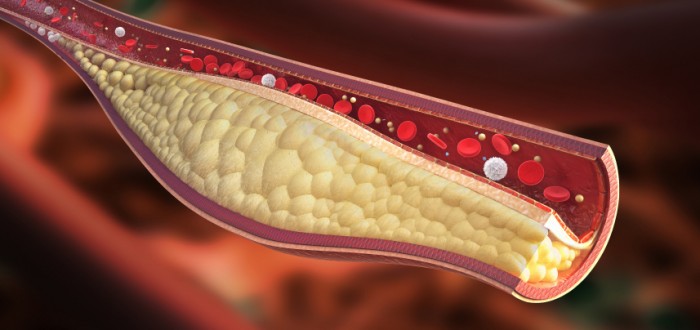There is one thing scientists have always struggled to explain about mesothelioma cells. They want to know how these cancer cells on the lining of your lung could uproot and travel to distant parts of your body.
Researchers at the University of Sydney in Australia now think they have an answer. Mesothelioma cells hop aboard passing cholesterol lipids in the bloodstream and hitchhike their way to all points north, south, east and west.
But mesothelioma and other types of cancer will only accept rides from low-density lipoprotein — better known as LDL or “bad” cholesterol.
However, if “good” cholesterol happens along, mesothelioma refuses to get in and go.
Consequently, the research team that made these findings suggests the way to keep cancer from spreading is for patients’ good cholesterol levels to be raised and their bad cholesterol levels to be lowered.
Stop the Mesothelioma Migration
The researchers’ observations about cholesterol and cancer appear in the most recent issue of the journal Cell Reports. University of Sydney Associate Professor Thomas Grewal is the senior author.
Grewal explains that the migration of cancer cells from one location to another causes the disease to become increasingly difficult to combat as time goes by.
As a result, attention needs to be paid to finding ways to halt or prevent the spread of cancer cells, a process also known as metastasis.
Grewal notes that cells — healthy and diseased — possess a certain amount of stickiness. This stickiness results from a group of molecules called integrins.
Integrins are found on the inside and outside of cells. The quantity of integrins on the inside compared to that on the outside can vary with circumstances.
One of those variation-causing circumstances is the presence of bad cholesterol.
Grewal’s team found that bad cholesterol brings a cancer cell’s inside integrins to the outside. This concentration on the outside gives the cancer cell the ability to latch onto the lipids of bad cholesterol as those drift by.
From there, it’s practically nothing but open road ahead for the hitchhiking cancer cell.
But Grewal’s team also discovered that good cholesterol exerts the opposite effect.
Statins May Keep Cancer from Spreading
The presence of good cholesterol causes a cancer cell’s integrins to retreat within. This leaves too few integrins on the cell’s surface to permit it to easily grab hold of any passing lipids.
In other words, the cancer’s got no ticket to ride.
It so happens that pharmaceuticals capable of inhibiting integrin activity exist. However, medical scientists can’t seem to successfully use them when it comes to keeping cancer cells in one place.
Not a problem. Grewal believes that raising a cancer patient’s levels of good cholesterol and reducing the levels of bad cholesterol can accomplish what integrin inhibitors cannot.
Statins are one possibility. These are drugs designed to prevent plaque from forming inside arteries, thereby reducing the potential for heart attack or stroke.
However, statins lower bad cholesterol without simultaneously boosting the good. For that reason, Grewal says more research is needed to see how truly helpful statins are in the effort to disrupt cancer metastasis.
Meanwhile, in clinical trials now are drugs designed to elevate good cholesterol.
Even if approved by the federal Food and Drug Administration (FDA), more than a few physicians and patients will be leery of these good cholesterol boosters. This is because an initial formulation was found to carry a heart-attack risk.
For now at least, Grewal recommends reducing bad cholesterol and increasing its good counterpart the old-fashioned way —with proper diet and plenty of exercise.
That’s sound advice for mesothelioma patients no matter how you approach things.

